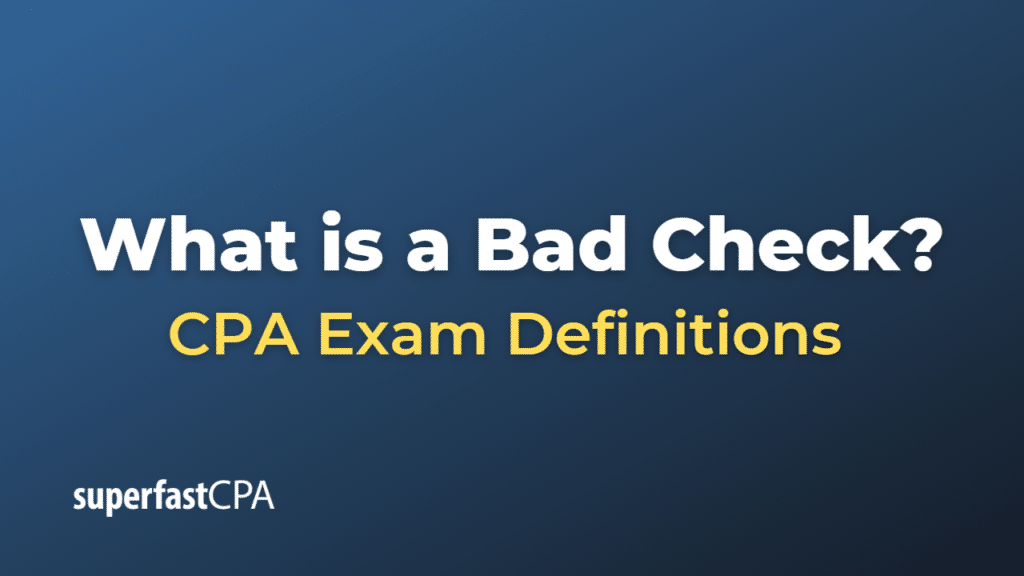Bad Check
A bad check, also known as a bounced check or a returned check, is a check that the bank cannot process due to insufficient funds in the account of the person or entity who wrote the check. When someone writes a check without having enough money in their account to cover the amount of the check, the bank will return the check to the person who attempted to deposit or cash it. This can result in fees for both the person who wrote the check and the person who attempted to deposit or cash it.
Bad checks can cause financial complications for businesses and individuals, as they may have already provided goods or services based on the expectation of receiving the funds from the check. To avoid dealing with bad checks, businesses and individuals can use electronic payment methods, require certified checks or cashier’s checks, or verify the account balance before accepting a check as a form of payment.
Example of a Bad Check
Here’s an example of a situation involving a bad check:
Imagine that John runs a small landscaping business. One of his clients, Jane, writes a check for $500 to pay for a landscaping project that John completed at her property. When John goes to his bank to deposit the check, the bank informs him that the check cannot be processed due to insufficient funds in Jane’s account.
In this situation, Jane’s check is considered a bad check or bounced check. John will not receive the $500 payment, and both John and Jane may be charged fees by their respective banks for the returned check. John may need to contact Jane and request an alternate form of payment, such as a certified check or an electronic transfer, to avoid any further issues.













